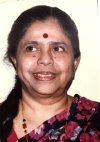Browse Amma's Column by Tags
1920s - ancient India - avatars - banana - bangalore - buddha - calcutta - christmas - coins - colin mackenzie - colonel - conference ii - conversions - cousin - cows - customs - dalit - democracy - dhols - dr narayan - drums - dung - fables - far east - gandhi - gandhiji - great deluge - guru - hinduism - home library - human body - idolatry - kalpa - karnataka - kautilya - kingdoms - krishna - manners - marriage - new books - new year - nuances - obituary - old temple - patience - personalities - peru - pontiff - postal service - prime source - queen - rao - relevance - religion - revolt - romance - runners - saga - saints - Saints of India - salt satyagraha - science - shaven heads - sher - sri lanka - suresh - terracotta - tradition - trauma - tsunami - tulunadu - unity - universality - women - zen - 11th century - 75th anniversary - alberuni - all india radio - amrita - ancient art - ancient india - ancient indians - animals - anmori - arthashastra - autobiographical notes - b_g_l_swamy - babies - basham - bedas - belief - bengaluru - bhagat singh - Bhagatsingh as seen by Kamaladevi. - bhagavata purana - bhagirath - Bhakti Cult - bharata - bhat - blouse - brahmin - brute - buddha jayanti - card games - cart - caste system - centenary tribute - centennial - chanakya - chariot - cheers - chilli - chinese monk - Christmas - christmas eve - cloud messenger - cockfights - code of manu - colonel colin - complete works - conch shell - cuisine - curry - customs - dasa - demons - dessert - devil worship - dhyan - dikshit - dikshitar - discovery - doldrums - eknath - elephant - empire - epigraphy - fanny - festival foods - festive - forest scene - freedom - gandhi - gandhiji - ganesh - gautama buddha - gayatri mantra - gesture - Goa - gods - gramophone record - grandmother - great men - grinder - guru - happy new year - haste - helping hands - hind swaraj - hind_swaraj - hindu - hindu religious symbols - hindu texts - hinduism - hindus - history conference - humanist - hunger - idolatry - indian civil service - indian names - indians - institution of marriage - interviews - jaina - juggernaut - kamath - kannada - karnataka - kasaragod - kavya - keladi - krishna - laughing buddha - legacy - lotus - loving touch - m n srinivas - mallya - mama - mango season - manu - masters - materialism - medieval india - memories - middle path - midwife - misadventure - moorthy - music tradition - musical - musings - narad - narada - new articles - night life - obituary - offerings - old photo - Om - ornaments - pai - pampa - panchatantra - peacock - peacock dance - peacock dress - pearls - philanthropist - pigeons - poet - poetess - potpourri - prayer - prehistory - promising artist - prostitutes - queen - quilt - rahul - rajasthan - rajendra - ramayana - ramdas - rao - rare volume - robber - roots - rubaiyat of omar khayyam - saints - sane guruji - saraswati - saraswats - science - scorn - sea navigation - sedam - serpent worship - shameful practice - sharana - shastra - shivaji - silver art - sorab - south east asia - south india - subba rao - sunset - swami - swamy - swastika - tara - tea - temple school - temple town - terracotta_town - three books - tiger - titan - tonsure - torave_ramayan - tradition - translator - travelogue - tree of life - tribute - tsunami damage - Tulasidas - tuluva - upanishad - vedanta - vedas - viswanath - Viswanath Kashinath Rajwade - vivekananda - w h sleeman - wall paintings - what is in a name - wilks -
Jyotsna Kamat Ph.D. lives in Bangalore.
More articles by Jyotsna Kamat
